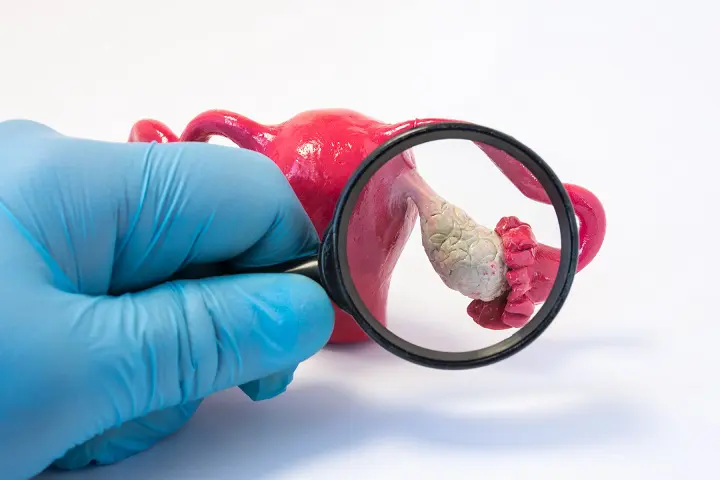A gynaecological disorder is a condition, which affects the female reproductive system and it may or may not cause associated problems in the other bodily systems. Symptoms of gynaecological disorders may be caused by a range of diseases, from a mild infection to the presence of cancerous cells in the reproductive organs. Early diagnosis of the symptoms can go a long way in effective treatment and cure of the condition. In case you experience one or more of these warning signs on a regular basis, consult your gynaecologist without delay. The following are the top 5 symptoms of gynaecological disorders you should not ignore:
-
Vaginal bleeding
In between your regular menstrual cycles, you may experience some bleeding. This can be the result of some different causes other than gynaecological problems such as hormonal imbalances, birth control medication or the onset of menopause. However, bleeding outside of the menstrual cycle can be harmful to the body and could quite possibly result from sexually transmitted diseases (STDs) and even cancer.
Sometimes the excessive bleeding could also be due to a change in the pattern of menstruation. Irregularities in your periods, shorter or longer periods, heavy bleeding or unusual pain during your periods may be indications of severe conditions like endometriosis, ovarian cysts and uterine fibroids.
-
Abnormal vaginal discharge
A white sticky discharge between periods is a natural bodily phenomenon. This, in fact, cleans the vagina and acts as protection against genital infections. There is also a certain amount of discharge if you are pregnant or breastfeeding. However, if you have vaginal discharge with an uncharacteristic colour or an unpleasant odour, it might be cause for concern. The discharge may take place frequently at any point of time, or it may occur specifically after sexual intercourse. Some women also report vaginal bleeding after intercourse. Bacterial infections, diabetes, cervical cancer, chlamydia, gonorrhoea, use of steroids, post-abortion complications, and vaginitis is the most common causes of abnormal vaginal discharge.
If you use cosmetic products like scented soaps, creams, bubble baths, lotions and douches and you experience abnormal discharge, you should try not to use these products for a while. If your symptoms disappear, you know that these products are insensitive to your system, but if the symptoms persist, you should consult a doctor.
-
Pelvic pain
This is a symptom that characterizes any infection in the reproductive tract such as pelvic inflammatory disease (PID). These diseases can cause severe damage to the fallopian tubes, uterus and the ovaries and lead to infertility and various other complications. You are most likely to feel a dull throbbing pain in the pelvic region or the lower abdominal region. Sometimes, there is also a feeling of tenderness in the stomach or the thigh muscles. This pain differs from normal menstrual cramps.
-
Itching in the genital areas
This is a tell-tale sign of vaginal diseases. The itching and burning sensations that you experience in and around the genital areas can be caused by STDs, yeast infection or sexual disorders such as the absence of sufficient lubrication during intercourse. The itching sensation is often accompanied by swelling, redness, soreness, lumps and eruptions around the genital area.
-
Frequent urination
The frequent urge to urinate along with a sharp and stinging pain during urination is reported by women with a variety of gynaecological problems like STDs, genital herpes and ovarian cancer. This may also be caused due to pregnancy and urinary tract infections (UTIs). In the case of a persistent problem, it is best to get it checked out by a doctor.
However, these are only a few of the symptoms, and there might be other symptoms, which are not so easily recognisable. For all the other symptoms that indicate gynaecological problems as well as for treatment of all these problems, consultation with a professional gynaecologist is a must.



